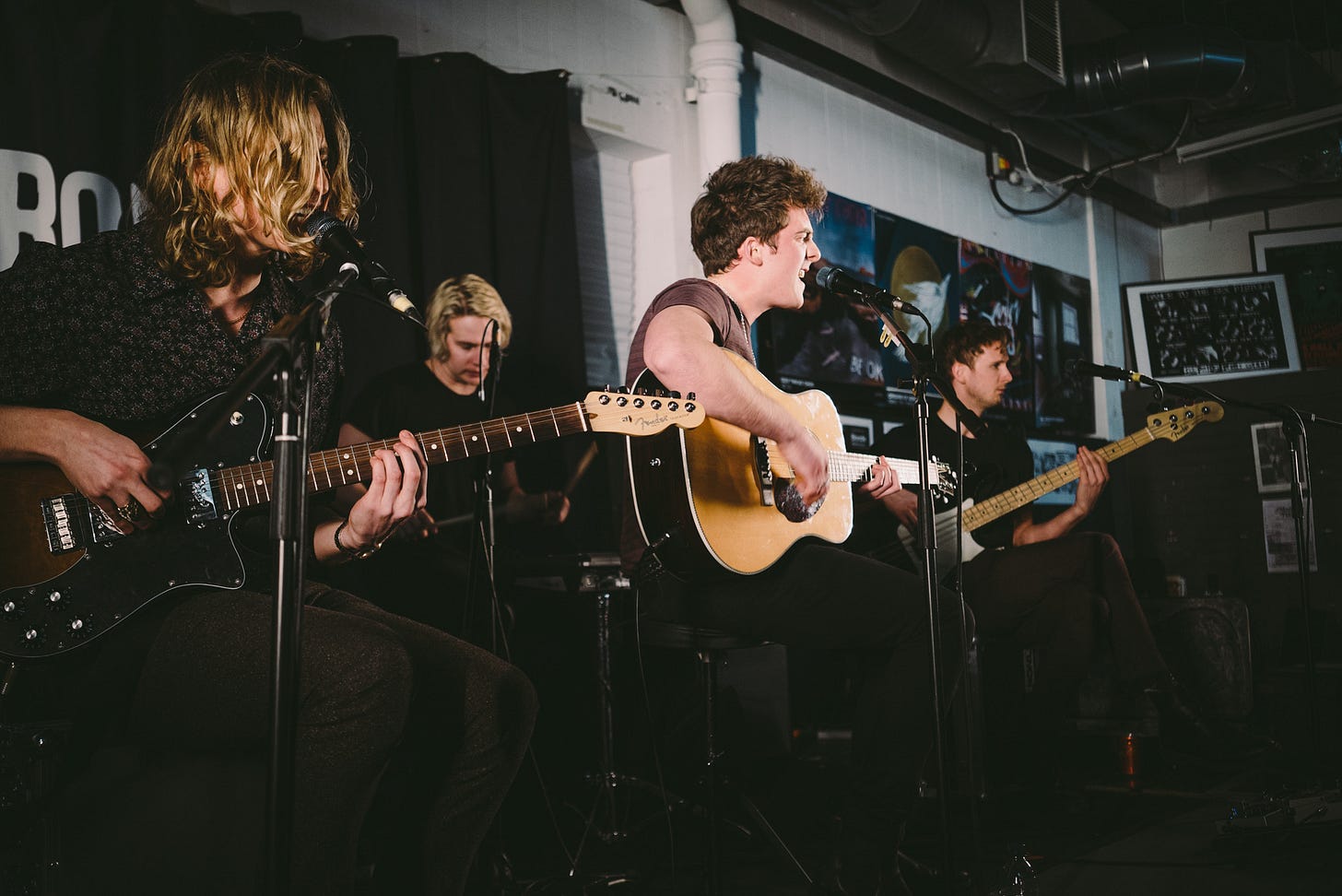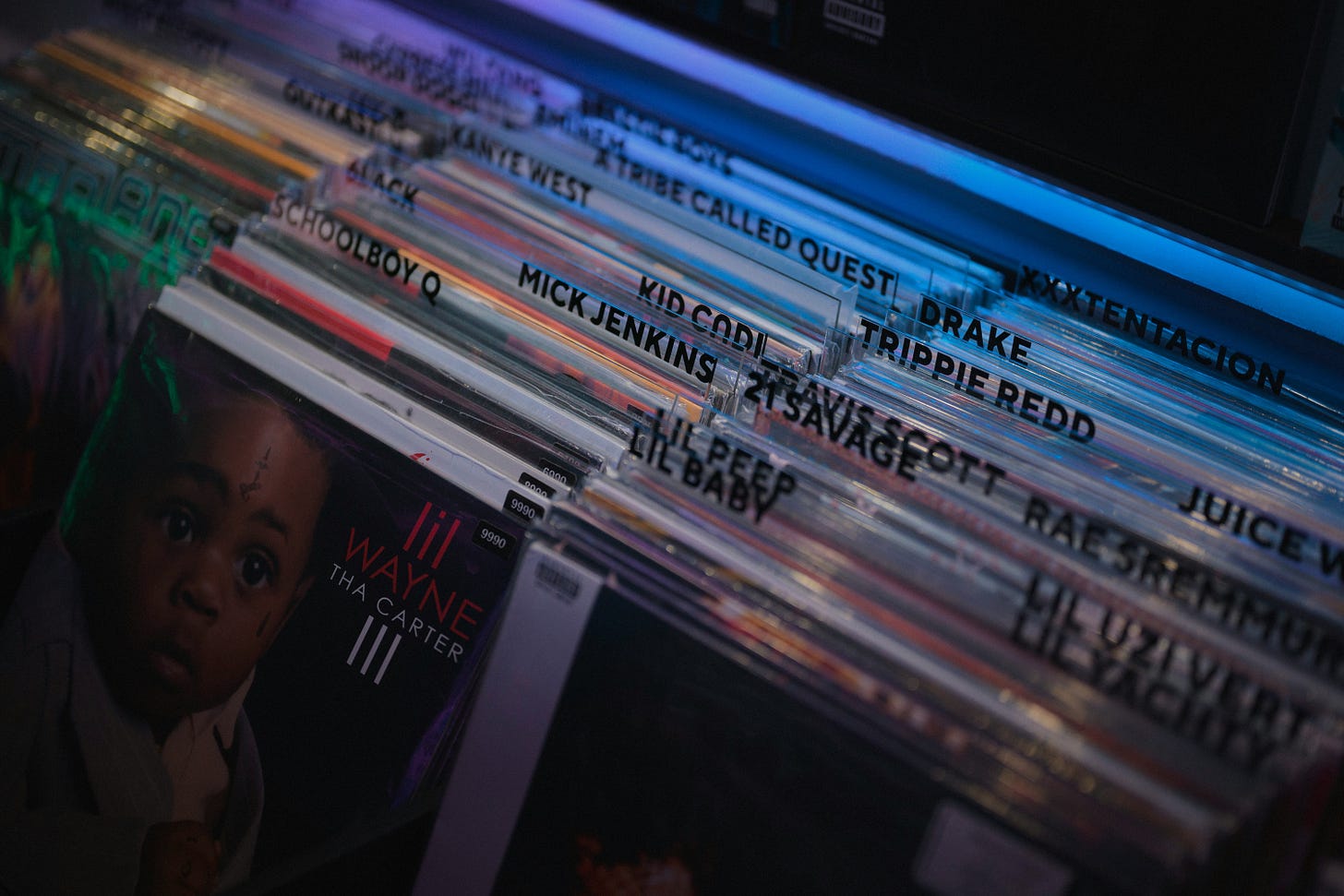The Fall of British Indie Music: What happened?
Is a genre that captivated an entire nation lying down to die?
Indie music had the UK in the palm of its hand. Dominating festival line-ups, seizing radio stations and enthralling an entire generation for more than a decade. Since the end of the 2010s, this entrancing genre has lost its grip and prompts the question, what happened to British indie music?
Catfish and the Bottlemen, Sundara Karma, Two Door Cinema Club, Courteeners, the Wombats, Circa Waves, the Kooks, Nothing But Thieves, Jamie T and many more defined the sound of English guitar music of the last decade. These artists were practically inseparable from British festivals between 2010 and 2020.
The birth of social media spread their sound rapidly and generated a huge fan base, predominantly consisting of teenagers and young people. Songs like ‘T-Shirt Weather’, ‘What You Know’, ‘Cocoon’ and ‘Sheila’ will remind thousands of people of bright and gleeful summers.
The core of what made this music so popular and so attractive was the formula. Incredibly catchy melodies and a chorus which would run laps round your mind and could be belted at the top of your lungs with a Dark Fruits in one hand. This paired with relatable lyrics, easy listening and an overall digestible sound seemed to be the embodiment of how people wanted to and did feel at the time.
Compared to the more heightened global turmoil we seem to be experiencing a decade later, life was simpler and with that came simpler music.
A huge number of these bands toured constantly and played at a huge number of festivals which helped their popularity grow and grow. The Wombats have played at Reading and Leeds Festival four times; Catfish and the Bottlemen have headlined four major festivals including TRNSMT and All Points East; Jamie T embarked on four UK tours and has played at over 20 festivals. Along with a plethora of history making live performances, indie artists have a trophy cabinet filled with chart topping songs and albums.
Catfish and the Bottlemen have achieved three Top 10 UK albums; The Wombats have had four Top 5 UK albums; Jamie T has had five Top 5 UK albums and Arctic Monkey have received six Number 1 UK albums in a row.
The glory years of indie music were indeed glorious however like all good things, it did certainly come to an end. Despite a treacle of popularity of these bands and some other emerging artists making their way into this new decade, the era is over.
Indie bands music is simply nowhere near as popular as it has been. The past few albums of Jamie T, the Wombats, Circa Waves and Two Door Cinema Club have failed to gather anywhere near the same sort of success that they previously did.
Jamie T’s most recent album, ‘The Theory Of Whatever’ released in 2022 has accumulated 21,170,711 Spotify streams (as of 18.04.25), compared to his third album ‘Carry On The Grudge’ which was released in 2014 and has accumulated 140,997,767
Spotify streams as well as his second album ‘Kings & Queens’ which was released in 2009 and has accumulated 135,265,272.
The decline does not appear to be as a result of quality. Many indie rock artists have released critically acclaimed albums and received drastically lower streaming numbers and general reception compared to their previous successes.
Circa Waves fourth studio album ‘Sad Happy’ (released in 2020) was described as ‘compelling’ and ‘ambitious’ by NME and received four stars. Their fifth album, ‘Never Going Under’ (released in 2023) received similar praise.
In comparison to their first few albums, Circa Waves have technically improved, having received a much poorer critical response earlier on in the career. Their second album (released in 2017), ‘Different Creatures’ received two stars from the Guardian. Despite this, the popularity of their music and the band as a whole was far more significant in the middle of the 2010’s. Their first album, ‘Young Chasers’ (released in 2015) currently has 208,389,075 Spotify streams compared to ‘Never Going Under’ which has 32,024,450 Spotify streams.
The Wombats 2022 album, ‘Fix Yourself, Not the World’ also received strong reviews from mainstream media however has only accumulated 79,163,627 Spotify streams compared to their 2015 album, ‘Glitterbug’ which has 409,650,814 Spotify streams and also received less favourable reviews from critics.
The downfall of this vibrant and jovial era of indie music was gradual and happened with relatively little attention being drawn to it. These artists' decline in popularity did however seem to happen around the same time, as we welcomed in the new decade.
Unfortunately for many of these bands, they attempted to evolve and change their sound but often faced a muted reception. Fans appeared to be very attached to the very distinct style of their music which brought them into the limelight originally.
Sundara Karma and Two Door Cinema Club both found incredible success very early on in their careers and witnessed a gradual descent in streams, fans and general attention. So much so that Sundara Karma called it quits in 2024.
There are a number of reasons for the genres fall. One is that the public became bored and wanted something new and refreshing. There are so many songs that feature a failed relationship, catchy hooks and pretty guitar riffs, that the audience will continue to love and play on repeat.
The music landscape has changed drastically. Other genres, in particular, country and dance music, have become increasingly more mainstream with artists like Fred Again and Sammy Virji leading the EDM siege and major popstars like Beyonce and Post Malone producing country albums. Guitar music is no longer one of the pillars of popular music and now exists more eccentrically within the shadows.
It was time for something new, more experimental and different. What is that coming round the corner? Is that fun, loud, in your face, weird and fun guitar music? What is its name? Oh, it’s the resurgence of post-punk! It appears to offer a more complex and intricate sound, indie music no longer seems to scratch the same itch.
Along with a change in the type of genres captivating the general public, there has been a dramatic change to the way in which music is consumed.
CD’s, Vinyl’s and Mixtapes have always championed an artists entire project. An album was the ultimate showcase of work and the way in which music was accessed meant you would purchase a whole album and listen to the whole thing. The newly found dominance of digital art means that streaming platforms have become the primary source of music. A study carried out by IFPI found that approximately 73% of people access their music through audio streaming platforms (ad and non-ad supported).
The ease and practicality of accessing music through your mobile phone has decreased album listening significantly. Simply clicking your favourite song rather than owning the physical collection of an artist's latest work has made it more of a challenge to accumulate strong fan bases.
Singles have to capture the audience's attention immediately and lead them through the door and into the house filled with an artist's portfolio. Whereas albums offer a much more thorough introduction to a band's music. This change in consumption has impacted all genres however an album, particularly in physical format was a real staple for indie fan bases.
Playlists also play a big factor in an artist's success. An appearance on a certain Spotify playlist can attract millions of followers, this then makes the path to success far more temperamental. It makes it less reliant on the quality of music and more so the decisions by playlist curators and editors.
This shift in the way people access music has resulted in a change in focus on the kind of artists that are currently finding success.
Individual artists and singles seem to be prioritised in terms of promotion compared to groups and bigger pieces of work. A shorter attention span and social media’s focus on an individual character and brand has taken away from the ability for bands to step into the limelight. The 2010s saw a real love for the concept of a band and the quirky personalities within it but that has changed.
The current state of the world and the music industry offer their own challenges. Covid-19 was a heavy blow to local music venues which are often a birthplace for both grass roots and well established indie acts. Live music scenes have dwindled as a result of venue closures and financial struggles. These locations were essential to the growth of these bands. Fan interaction and in person access has been stunted. Indie artists in the 2010s heavily relied on their live performances to create massive fan bases, the removal of this has had a detrimental impact.
Music, culture changes and evolves. Unfortunately for indie music that means it's time as the UK’s sweetheart is over. It spent a decade mirroring British culture and creating an atmosphere of euphoric sunshine. Its time in the spotlight was fun and vibrant but as the world moves into the unknown, so does its sound.
Music, culture and entertainment go on adventurous, bizarre and sometimes treacherous paths. Indie music represented miles of beautiful countryside and glorious sunsets. It made a glorious stance. It represented a feeling. It represented pure joy, but its time as the UK’s sweetheart is over.
New and bizarre artists are now having their time to shine but indie music will never die and it will be back and more glorious than ever.









